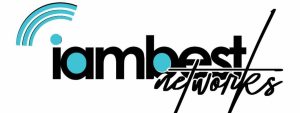Share this
s the Nigerian Electricity Regulatory Commission (NERC) plans to roll out a new metering regulation, Daily Trust reports that customers bought 410,796 meters between 2013 and 2016 under the previous arrangement – the Credited Advance Payment for Metering Initiative (CAPMI).
Our reporter analyses the success of CAPMI and the pitfalls government must check in rolling out new plans, so the power operators don’t shift the metering to their customers.
The 11 electricity Distribution Companies (DisCos) vested with the installation of meters and other investments in the distribution section of the power sector, only provided 201,756 units of meters during the period.
Over the last four years, following the handover of the DisCos to core investors, majority of the end-user electricity customers remained unmetered and are therefore billed on the basis of estimate of energy consumed rather than actual consumption.
While the customers bought 51 per cent more meters than the DisCos when the CAPMI scheme operated from 2013 to 2016, the DisCos had actually committed to providing 1.640 million meters annually which would have been able to reach 4.92 million electricity customers.
Metering data from NERC showed that as at July 31, 2017, the number of metered customers stood at about 3.451m representing just 46 per cent of the total customer population of 7.476m on the billing platform of the DisCos.
However, 4.025m customers are still left without meters. If the distribution firms had met their metering targets of 4.92m in the three years, there would have been an excess of 895,000 meters left.
The metering progress has been proved to be very slow from data advanced NERC. The DisCos only installed 201,756 units in the three-year period. This is just about 12.3 per cent of their annual target of 1.640m meters. Electricity customers helped them to install a larger 410,796 meter quantity, representing 25 per cent of the target.
The combined figure only represents 37.3 per cent of the ambitious annual target they had set out for themselves since 2013.
The total installed meter during the period was 612,552 units which is 1.27m meters less than was expected in just one year.
The regulatory commission, which is expected to roll out a new plan to boost the implementation of meters shortly, had recounted how it rolled out the CAPMI in 2013 to tackle the many complaints against estimated billing method.
The estimated billing practice, referred to as excessive or crazy billing, is regarded most consumers as arbitrary, subjective and non-scientific. This has consequently resulted in customer dissatisfaction, apathy and public outcry and increasing incidence of electricity theft, it said.
NERC said it discontinued the CAPMI scheme in September 2016 and directed the DisCos to commence the full implementation of their metering schemes in accordance with their five-year metering rollout obligation under the Performance Agreements signed with the Bureau of Public Enterprises (BPE) in their Capital Expenditure (CAPEX).
On why the DisCos cannot meet their metering targets, spokesman for the Association of Nigerian Electricity Distributors (ANED), Barrister Sunday Oduntan, told our reporter recently that the CAPEX set NERC in the DisCos’ tariff plan was not enough to meet the metering target and also finance other investments like transformer installation.
He had severally said the DisCos’ hands were tied and that until there was intervention, the investment in metering could be a huge task.
NERC in its consultation paper confirmed this position as it admitted that “the capping of CAPEX the commission as a basis for managing spike in end-user tariffs was partly detrimental to the attainment of the required level of metering in the industry.”
However, the commission said the main constraint remains the inability of the DisCos to raise adequate financing for their capital investment requirements.
Hurdles as NERC ends estimated billing 2020
In its consultation paper, NERC said the new process of metering customers would ensure the estimated billing is phased out year 2020. However there are more hurdles in metering with expected new entrants and the replacement of defective meters.
While 46 per cent of electricity customers in Nigeria have meters now, the customer base is expected to grow nine per cent annually as outlined in the Multi Year Tariff Order (MYTO) 2015 model. It is also projected that there should be 300,000 to 500,000 meters yearly above the DisCos’ commitment to cater to this.
The Minister of Power, Works and Housing, Mr Babatunde Fashola, has urged the commission to expedite action on the metering regulation so that customers can begin to heave a sigh of relief from the many estimated billing issues.
Speaking to the commissioners last week at his ministry when they presented copies of the Eligible Customer Regulation, Fashola said, “Much as we welcome this (Eligible Customer Regulation), I think the regulation that everybody is waiting for is the regulation on meter.
“It will be a good thing if you can complete that before this month is over and let us see then how quickly that can stimulate licensing of meter suppliers,” he saidSource: Daily Trust

